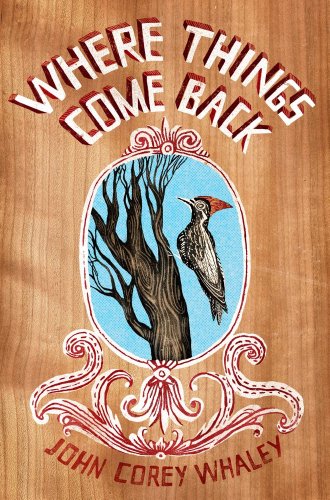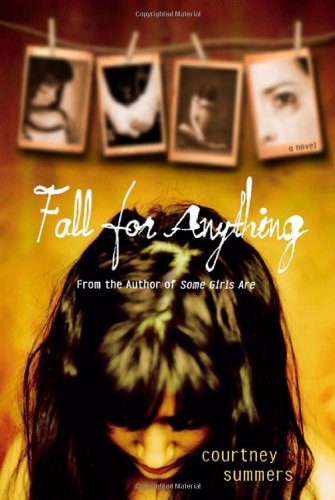In my experience there is no advantage in either being pro-setting or anti-setting: however, one is at a distinct disadvantage by feeling indifferent to the time and place in which one's story is set. Relegate setting to the backseat or make it the chassis on which everything else rides, but do not ignore it. [bolding mine]That says it better than I can and it illustrates my problem with many of the small-town novels I've been reading: I get the feeling that the settings are being ignored. That they're there, but they don't actually matter. It sometimes seems as if the small town setting is just a device, a reason for the character to go after that scholarship (to get out of the town) or a reason to dislike the (familiar, annoyingly nosy, possibly uneducated) people around. It often feels more like an excuse than a setting, which always ends up ruining a part of the book for me. Because the thing is that a book doesn't need to devote time to talking about setting. It can slide setting to the backseat and let the characters and their story take over completely. But when a setting is involved? Especially one that is specific and often demanding? I want it to live up. I want it to be handled well. I want to get a feeling from it. Because the setting isn't just the size of a school or whether roads are paved or dirt or if there's a mall, but also -- and overwhelmingly -- a feeling of culture, of community. A sense of place. An atmosphere.
Some books set in small towns pull it off spectacularly. The setting serves as a centerpiece, almost a character in its own right. It feels authentic, like a real place, even if it isn't. More importantly, you can really tell that the setting has affected the characters. That they fit -- or don't fit -- in this place. And unless a setting has its own atmosphere and feeling to it, who really cares if a character fits there? How can you even tell?
When a setting is part of the story it should be part of the story. A part of the plot or characters, not an excuse for the plot or characters. I don't think this would bother me except for the fact that so many books I've read recently have had the same type of setting, for the same type of reason, and it doesn't feel real. In an otherwise awesome book a shabby setting can make me shake my head and wish the book was just a little bit more.
Fellow readers (and authors!) -- what do you think of all the small town settings in YA? Like? Or not? Do you feel, as I do, that some of the stories would work better if the setting had been relegated to the backseat altogether?
Also! Here are some YA books (both older and newer) with phenomenal small town settings. Seriously, bravo.





I like the small town things... except when they're not really small towns. Like a small town of 10k. My town is 1200 people and we're large for the area. My aunt's town is 500 and there's one near us that's 300.
ReplyDeleteMy books are usually set in small towns because that's what I know, but my newest is set in a larger city. I used to live in a big city (75k) so, you'd think I'd be able to write it better... but it's hard.
Laina
ReplyDeleteFor me, honesty, the "small town" is more a feeling than a number, especially if it's something I'm reading in a book and not real life. My hometown was (when I lived there) about 10k or so... maybe a bit less... but it was very spread out and woodsy and isolated from any "real" city, so it definitely had the small town feel of generations of families growing up there and your grandparents knowing the grandparents of kids you go to school with. So for me it's often more of an atmosphere than an actual size (unless it's obvious the town is a huge city... like they have a mall or multiple school districts or something...)
Almost all of my novels have been set in small towns, though one took place in a major metro area and another started out there and my current one is... I'm not quite sure where, actually, but definitely not a small town. Possibly L.A.
I love this whole post, Jordyn, but my favorite part is when you said:
ReplyDelete"It sometimes seems as if the small town setting is just a device, a reason for the character to go after that scholarship (to get out of the town) or a reason to dislike the (familiar, annoyingly nosy, possibly uneducated) people around. It often feels more like an excuse than a setting, which always ends up ruining a part of the book for me."
I read that and BEAUTIFUL CREATURES instantly went through my mind, because it seemed to exemplify the points you just made. The authors seemed to like beating me over the head with the fact that it was a small, dinky town full of horribly uneducated, bigoted, small-minded people. Over and over and over again. Till I wanted to just reach into the book, yank out the main character, and drop him in NYC or Chicago or even San Diego. Everybody's a winner in San Diego!
For me, setting is of the EXTREME importance in true high fantasies (where the setting is completely fictional and I can't just reference wiki or a map and really need the author to describe the surroundings for me) or dystopians. In basic paranormals or contemps, it's kind of like, whatever floats the author's boat. :D